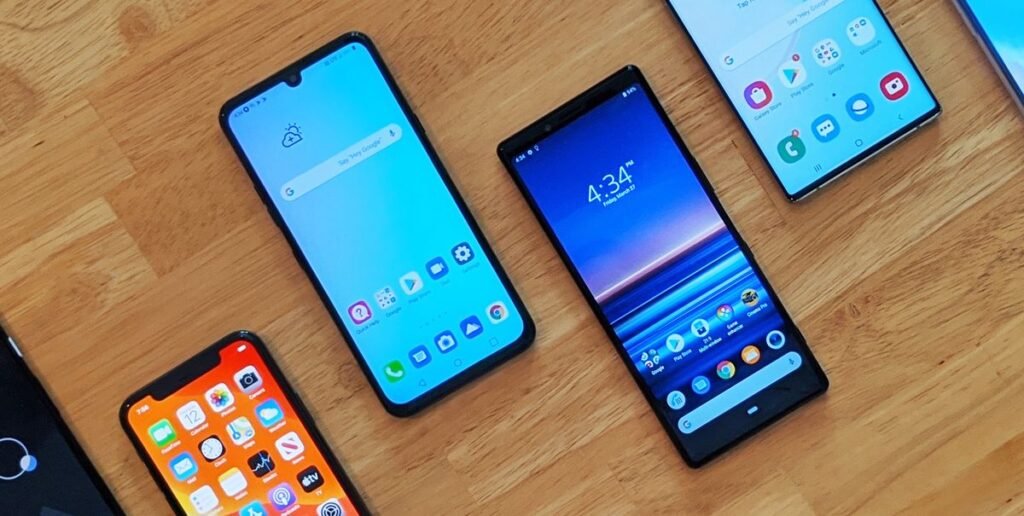How to chose the ideal smartphone to buy can be a very difficult task considering the rate at which new
smartphones are being released. iPhone 15 Ultra, iPhone 15 Pro, Google Pixel 8, and Samsung Galaxy
Z Fold 5 are among some of the phones that are expected to be released this year. One thing you can
be rest assured of is all the smartphones mentioned above are of the highest quality in terms of
functionalities, and design among other factors worth considering.
In this post, we will share about seven important factors to consider when you are about to get a new or
fairly-used smartphone that will satisfy your most important needs. In as much as it is almost impossible
get a “perfect” smartphone, some of these factors will aid you in getting a smartphone that will serve you
for a decent period of time.
Define Your Budget
This is one of the most important factors to consider. It is no longer news that most of the latest
smartphones whether android or iphone are quite expensive so you have to work within your budget
when deciding on which smartphone to purcahse. You don’t necessarily have to buy a new phone if it is
going to overstretch your budget. You can get a fairly-used (UK-used) smartphone that will tick, if not all
but most of your boxes.
Define Your Purpose
One of the most important questions you should ask yourself before purchasing a smartphone is “What
do I want to use this smartphone for?” Some smartphones are exceptional when it comes to gaming
while others are exquisite for photography and video recording. In addition, some smartphones are
designed so can have them as your second phone or business phone. For instance, you can decide to
get a mid-range android device to serve as a complement to your iPhone 13 Pro.
Android or ioS?
These two operating systems are the most common and there is always a fierce competition between
them as they try to outsmart eachother in terms of providing the latest technological imputs in their
devices. Android and iOS have distinct user interfaces. Android provides a more customizable and
flexible interface, allowing users to creatively design their home screens, widgets, and overall look and

feel. iOS, on the other hand, offers a sleek and consistent interface across all devices, providing a user-
friendly and intuitive experience. Also, Both operating systems have large app ecosystems, but there are some differences to consider. Historically, iOS has been favored by developers, resulting in a larger
number of high-quality and optimized apps available in the App Store. However, the Google Play Store
(Android’s app store) has caught up and now offers a wide range of apps as well.
Battery Life
Battery capacity is also an important factor to consider. You domn’t want to buy a smartphone that will
you to charge it every now and then. A smartphone with a good battery healthy or capacity is always
advisable. In fact, one our clients considers the battery capacity of any smartphone before the design,
camera quality, and other fuctionalities. A longer-lasting battery will keep your device powered throughout
the day.
Performance and Speed
When choosing a smartphone, it is important to take into account the processing power, RAM, and
storage capacity of the device as they directly impact its performance. Here is a further explanation of
what to consider in each category
Processing Power: The processing power of a smartphone is determined by its chipset or CPU (Central
Processing Unit). Look for a smartphone that has a high-end processor, such as Qualcomm Snapdragon
or MediaTek for Android devices, or Apple’s A-series chips for iOS devices. These powerful processors
ensure smooth operation, fast app launches, and efficient multitasking.

RAM (Random Access Memory): RAM plays a crucial role in a smartphone’s ability to handle multiple
tasks simultaneously without slowing down. Look for smartphones with sufficient RAM, typically ranging
from 4GB to 12GB or more, depending on your specific needs. More RAM allows for seamless
multitasking, quick app switching, and improved overall performance.
Storage Capacity: Consider the amount of storage you require based on your usage patterns. If you
store a large number of photos, videos, music files, or install many apps, opt for a smartphone with
ample storage capacity. Most smartphones offer storage options ranging from 32GB to 512GB or more.
Additionally, check if the device supports expandable storage through a microSD card slot, which
enables you to increase the storage space in the future.
Camera Quality
If photography is important to you, prioritize smartphones with good camera specifications. Look for
features like megapixel count, aperture size, optical image stabilization, and low-light performance. Also,
consider additional camera features like wide-angle or telephoto lenses. Some of the best phones with
quality cameras include Samsung Galaxy S23, Google Pixel 7 Pro, iPhone 14 and 14 Pro Max,
Samsung Galaxy S22 Ultra among others.
Design
When choosing a smartphone, it’s important to consider its design aesthetics and build quality. Different
individuals have varying preferences, with some favoring sleek and premium designs, while others
prioritize durability and ruggedness. Factors to consider include the materials used in the smartphone’s
construction, such as metal or glass, the presence of water resistance, and the overall ergonomics of the
device. By taking these aspects into account, you can select a smartphone that aligns with your desired
aesthetic appeal and durability requirements.
There are other factors to consider but we believe that the factors mentioned above are some of the
most important to consider when you want to get a smartphone tailored for your needs.
Thanks for reading!


